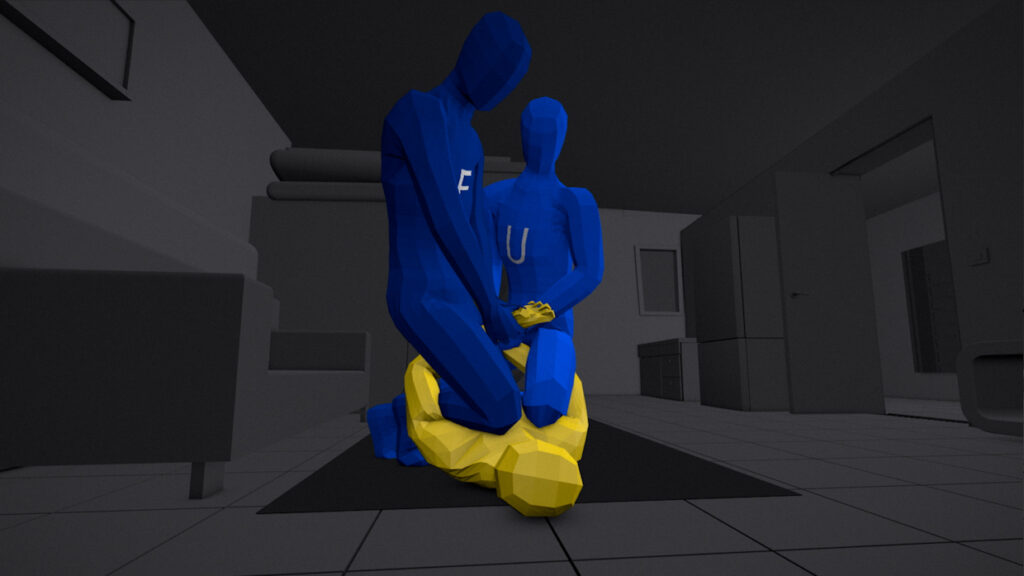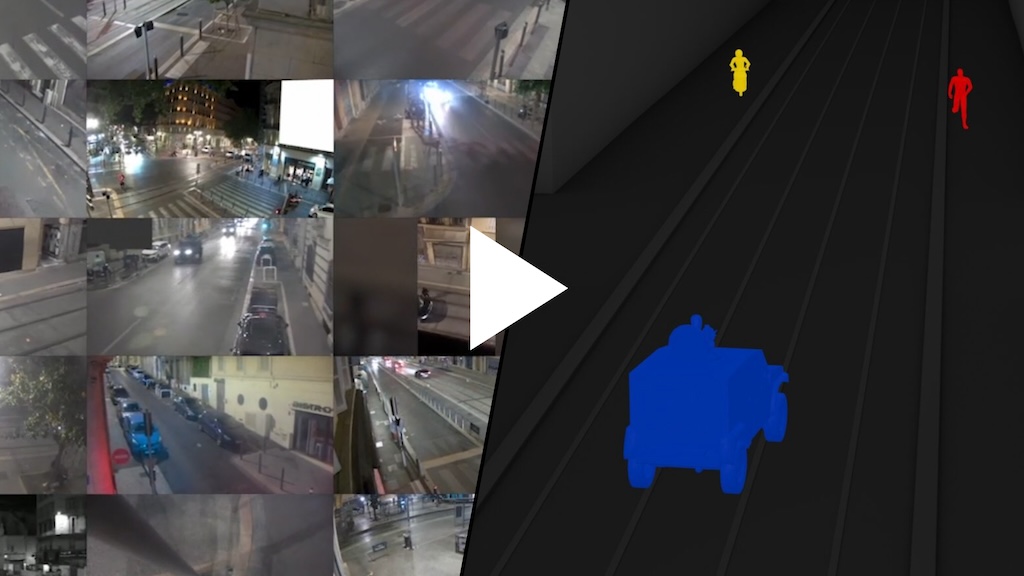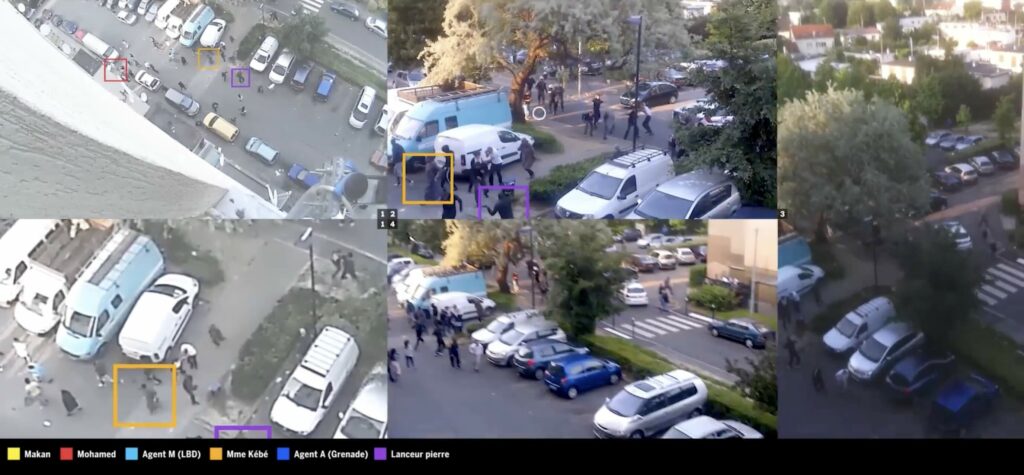With 15 years of experience in video post-production and motion design, following an earlier career as a web developer, I have built expertise in manipulating digital media and data. Below is a brief overview of some of the techniques I use.
3D reconstructions

Inpsired the work of Forensic Architecture, I use 3D models in my demonsrations, to anchor a complex scene in space, connect different media clips, and often add an explanatory layer to a situation.
“The 3D model of the architectural environment becomes an optical device to understand the relationship between separate elements.” (Eyal Weizman)
I have notably used this medium to cover a number of police violence cases in France:

Other cases:
- Amine Leknoun’s death (Libération, 2023)
- Pont-Neuf case (Libération, 2022)
- Lagos Inferno (BBC, 2020)
- Olivier Béziade (Le Monde, 2019)
Media synchronisation
This process involves aligning the timing of different media streams or sources to create a synchronized edit of all recordings. It can be used to cross-verify information across multiple perspectives.

Data mining
I work with programming languages to analyze large datasets, to identify patterns and extract useful information.
Open source investigation
This process involves gathering and analyzing publicly available information from various sources to uncover relevant insights. It can be used to verify facts and support investigative findings.
